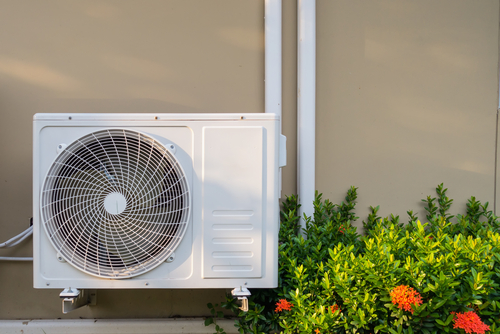What Are the Most Common Problems With AC Units in St Louis?

When the sweltering heat of summer hits St. Louis, having a functioning air conditioning unit is essential for staying cool and comfortable. However, like all mechanical systems, AC units are susceptible to various issues that can disrupt their performance and leave you sweating in the heat. In this blog, we will explore the most common problems with AC units in St. Louis and discuss potential causes and solutions to help you keep your home cool and comfortable throughout the summer.
1. Refrigerant Leaks
One of the most common problems that AC units in St. Louis face is refrigerant leaks. Refrigerant is the substance responsible for cooling the air in your home, and if there is a leak in the system, it can cause your AC unit to blow warm air or fail to cool your home effectively. Signs of a refrigerant leak include reduced cooling efficiency, ice buildup on the evaporator coils, and hissing or bubbling noises coming from the unit.
2. Dirty Filters
Clogged or dirty air filters are another common issue that can plague AC units in St. Louis. Over time, air filters in your AC unit can become clogged with dust, dirt, and debris, restricting airflow and reducing the unit’s efficiency. Dirty filters can lead to poor indoor air quality, reduced cooling capacity, and increased energy consumption.
To address this issue, regularly check and replace the air filters in your AC unit. It is recommended to replace filters every one to three months, depending on usage and air quality. By maintaining clean air filters, you can improve airflow, enhance cooling efficiency, and prolong the lifespan of your AC unit in St. Louis.
3. Thermostat Problems
Problems with the thermostat can also impact the performance of AC units in St. Louis. A malfunctioning thermostat can cause the AC unit to cycle on and off irregularly, fail to maintain a consistent temperature, or not respond to temperature adjustments. Faulty wiring, dead batteries, or incorrect settings are common causes of thermostat issues.
4. Frozen Evaporator Coils
Frozen evaporator coils are a common issue that can affect AC units in St. Louis, particularly if there is restricted airflow or low refrigerant levels. When evaporator coils freeze, it can cause the AC unit to blow warm air, produce a musty smell, or cause water leaks around the unit. Frozen coils can result from dirty filters, low refrigerant levels, or airflow obstructions.
5. Electrical Issues
Electrical problems are another common issue that can impact AC units in St. Louis. Faulty wiring, blown fuses, or damaged capacitors can cause the AC unit to fail to turn on, produce strange noises, or experience frequent power outages. Electrical issues can pose safety hazards and lead to system malfunctions if not addressed promptly.
6. Lack of Maintenance
A lack of regular maintenance is a common factor contributing to problems with AC units in St. Louis. Neglecting routine maintenance, such as cleaning, inspections, and tune-ups, can lead to dirty components, worn-out parts, and reduced efficiency in the system. Regular maintenance is essential for preventing issues, extending the lifespan of your AC unit, and maximizing cooling performance.
Summary
AC units in St. Louis are vulnerable to various common problems that can affect their performance and efficiency. From refrigerant leaks and dirty filters to thermostat issues and frozen coils, identifying and addressing these issues promptly is essential for maintaining a comfortable indoor environment. By understanding the common problems with AC units in St. Louis and seeking professional assistance when needed, you can keep your home cool and comfortable throughout the summer season. Prioritize regular maintenance, prompt repairs, and professional service to ensure that your AC unit operates efficiently and effectively when you need it most in St. Louis.
Need HVAC Services in St. Louis, MO?
Keep cool or stay warm with Ashley Brothers Heating & Cooling. Since 1999, Ashley Brothers have been providing residential and commercial services to the St. Louis and Jefferson County area. We specialize in the installation of new equipment, heating and cooling repair, and furnace cleaning. Craftsmanship is important, equipment choice is too. We work with only top brands like Amana, Goodman, York, and McLain. It is understandable that replacing or upgrading your equipment can be daunting. Ask us about financing. We repair all heating and cooling equipment brands. Heating and cooling repairs can happen at random, take advantage of our 24-hour emergency service. Call us today about your concerns.

 How To Protect My AC In Summer
How To Protect My AC In Summer